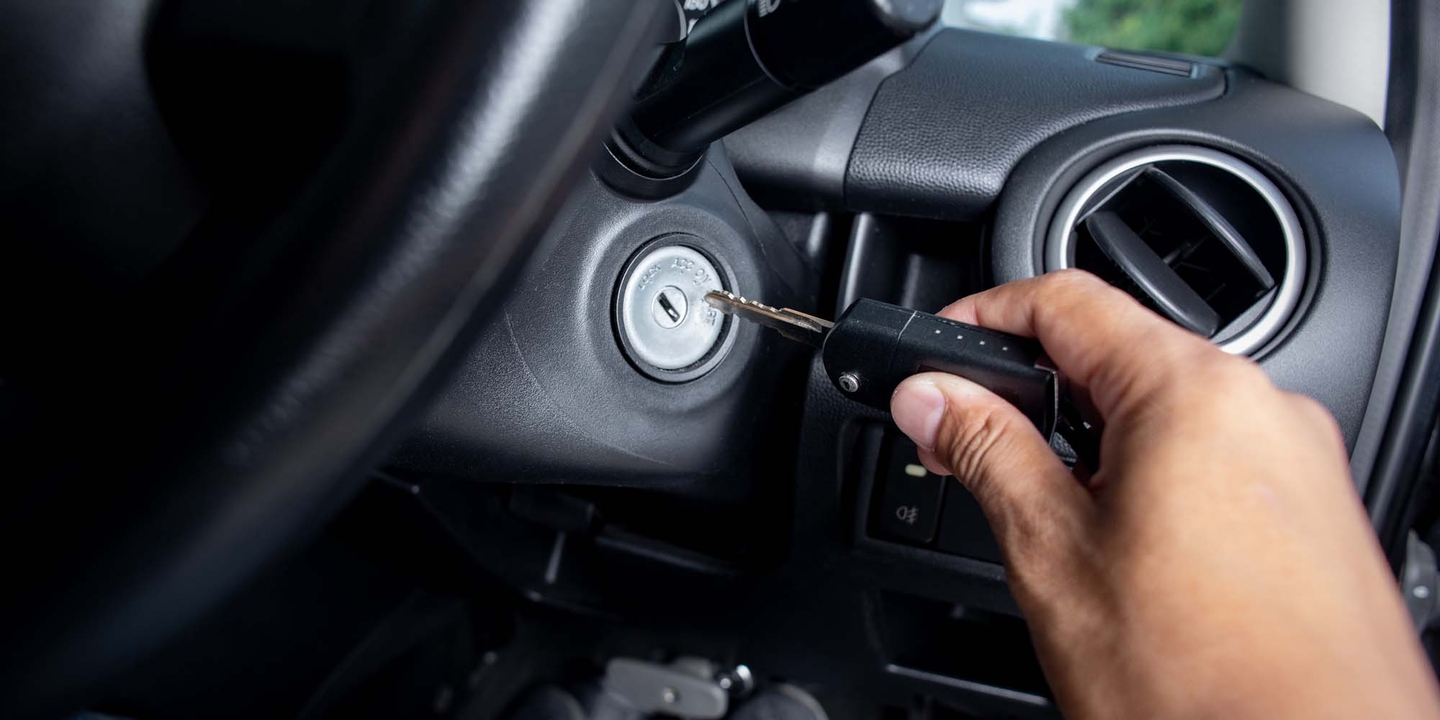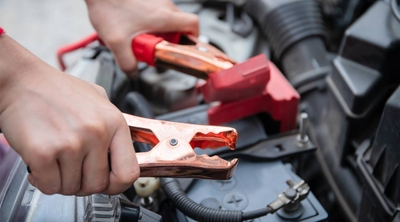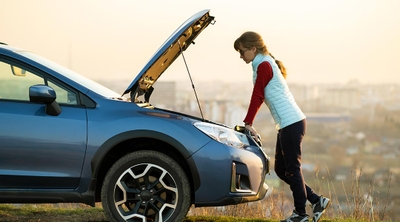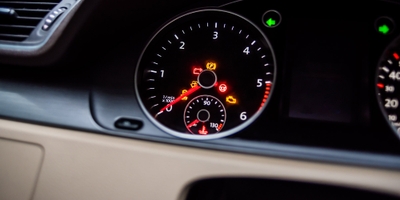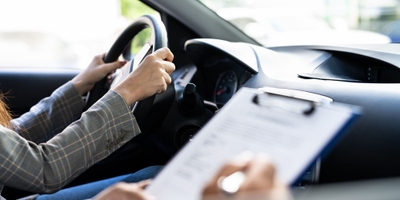Why won't my car start?
3 min read
Common causes of a car not starting include a dead battery, bad alternator, and other faulty parts. When your car won't start, it's best to take a moment to do some initial troubleshooting to identify why it won't start. Although you might be able to handle some of the more common problems yourself, such as a dead car battery or cold engine oil, certain scenarios may require help from a mechanic or roadside assistance.
Common reasons why a car won't start
Dead battery
One of the most common reasons a car won't start is because of a dead battery. Standard car batteries usually only last three to five years, depending on the vehicle's use. With a dead battery, having a set of jumper cables and a nearby motorist willing to help may be enough to get your car started again. Check on an older car battery as soon as possible afterward, though. Auto repair shops and most auto parts stores should be able to test the battery life on the spot, often for free.
Cold weather puts extra strain on car batteries, significantly reducing their strength. The cold can also thicken essential fluids that need to flow through the engine. If you suspect the cold is causing the issue, you can try "cycling the key" to get the battery warmed up. This process can sometimes heat up components like the battery, the battery terminals, and the starter, allowing you to get the car going. To cycle the key, take the following steps:
- Turn the key from the off position to the start position 10 times in a row
- Try to start the engine again after waiting a few minutes
- If this process doesn't work the first time and your car won't start, wait a moment and then try it again
Newer vehicles have push buttons instead of keys that go in the ignition. These buttons need a signal from the remote or key fob to start. Sometimes the remote battery dies or gets out of sync with the car. Try swapping out the fob's battery first. If that doesn't work, follow the owner's manual for how to reprogram the remote.
Bad alternator
If the problem is more serious, you may have to have your car towed to a mechanic. If you have a bad alternator, you may have a professional replace it, though you may be able to replace the alternator yourself. This part is connected to your car's battery and works to generate power for your vehicle's electrical components. Learn more about how car insurance covers towing.
When your car won't start but the battery is good, meaning you know it's new and should work, the alternator might be the issue. Cold and damp climates may increase wear on an alternator, causing it to fail. Flickering gauges and a burning rubber smell could indicate that the alternator overheated and requires replacement. Learn more about when your alternator may need replacement.
Faulty starter, fuel filter/pump, timing belt, and more
If your car makes clicking noises when you're trying to start it and the battery isn't at fault, a faulty starter might be the culprit. Plenty of other parts can fail, too: the fuel filter, fuel pump, timing belt, spark plug, ignition switch, or cables, to name a few. You'll want to get your car into the shop as quickly as possible to diagnose the issue.
Modern vehicles are essentially computers on wheels. Multiple mechanical problems, such as a faulty temperature sensor or a malfunctioning alternator, may confuse the onboard computing systems. A qualified mechanic can run diagnostics at the shop for you.
What to do if your car won't start
If you're not able to jump the car battery yourself, your next step may be to call roadside assistance, if you have it. They might be able to get you back on the road without having to tow your car to a mechanic, though they can usually arrange this as well.
Roadside assistance coverage is often available through your auto insurance policy. You can also check your credit card perks and car sale documents to see if they include roadside assistance. Find out exactly what your service covers and if there are any limitations or restrictions that apply.
With certain conditions, purchasing roadside assistance coverage through your auto insurance could provide the better value. Learn more about car insurance coverages.
